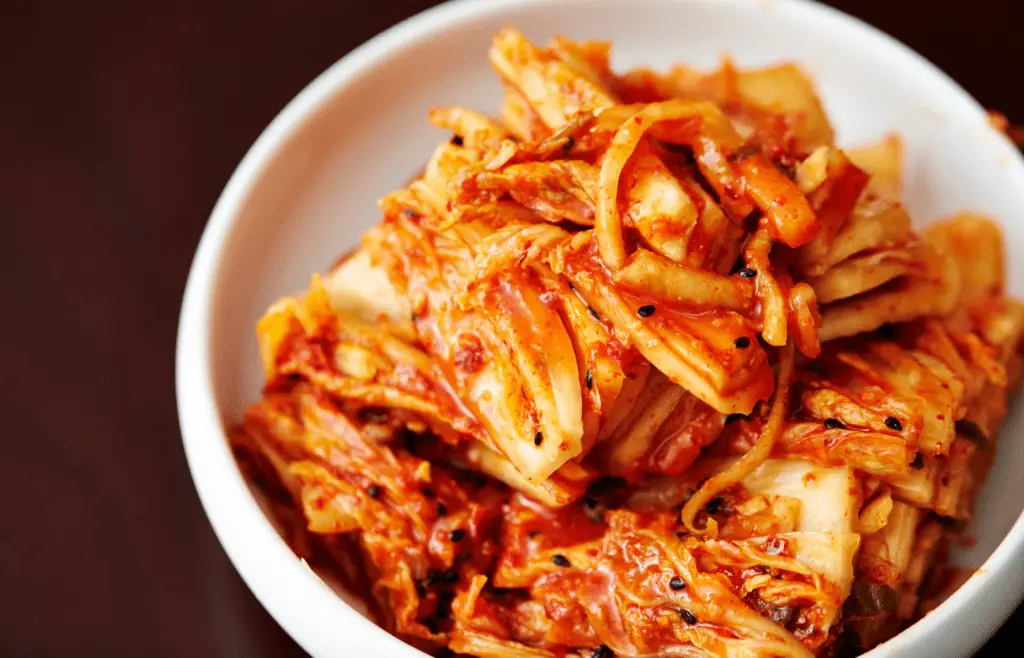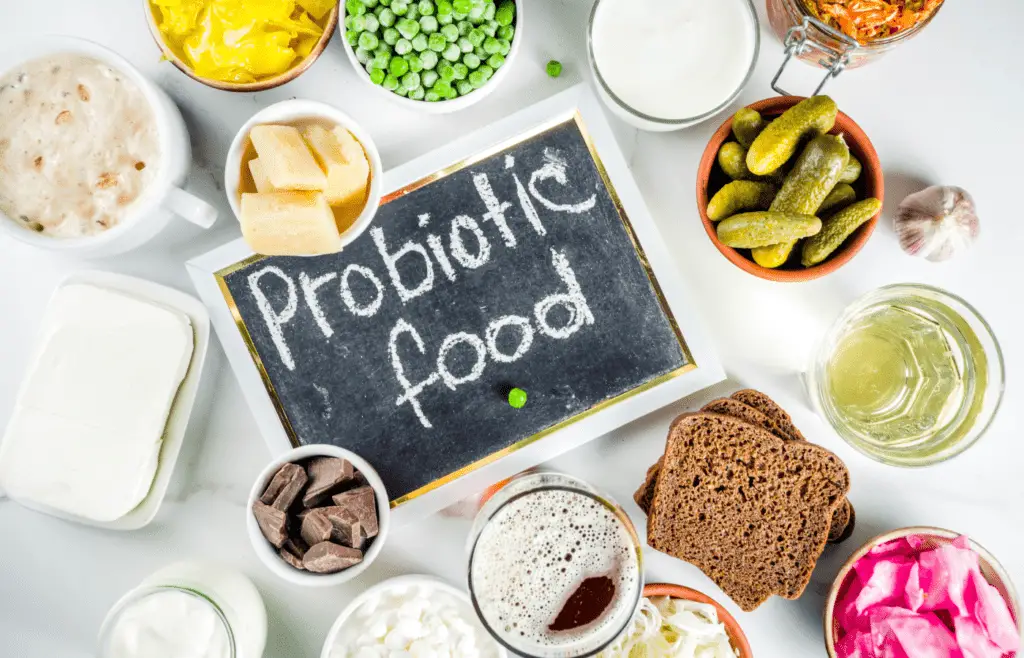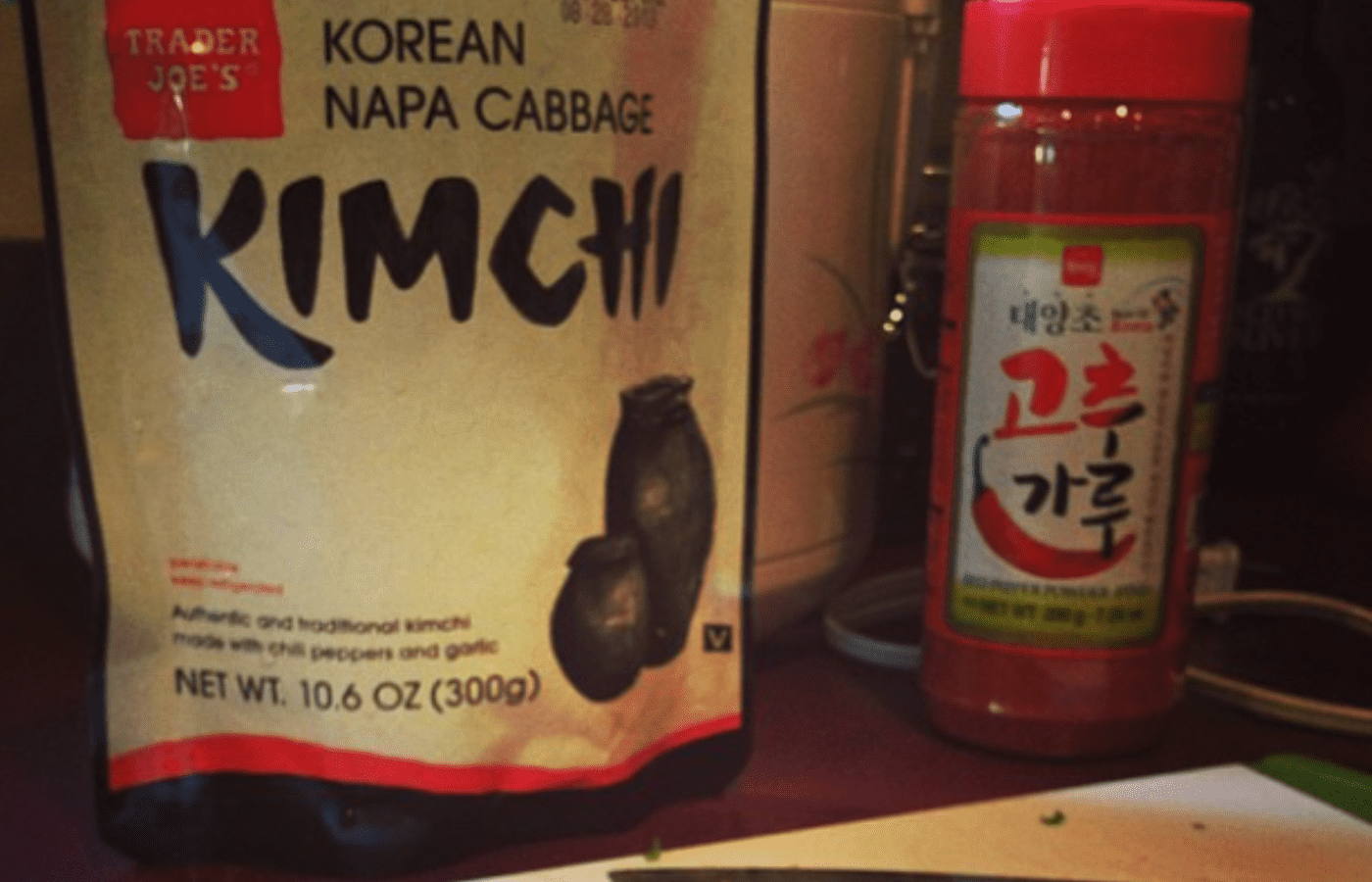Kimchi has swept the food world with its touted health benefits and the fascination with fermented foods and their probiotic nature. Not all kimchi or fermented foods have probiotics, but many of them do. When it comes to Trader Joe’s and their affinity for hopping on food trends, they’ve also released their own kimchi.
Trader Joe’s kimchi does contain probiotics. It’s also a very clean kimchi with minimal ingredients that all serve their own purpose. Kimchi is made by fermenting certain vegetables, so it usually has some amount of probiotics. However, kimchi products vary in terms of how many probiotics it contains.
Outside of probiotics, kimchi has a wealth of other healthy components that make it an excellent accompaniment to a variety of recipes, and it’s also very delicious.
Understanding Probiotics
Probiotics are live cultures or live bacteria that are essential to your digestive and gastrointestinal health. The body makes its own probiotics in order to promote healthy functioning of these systems while simultaneously helping to eliminate bad bacteria from the body.
Probiotics also naturally occur in some fermented foods like kimchi but they are also added to certain foods to boost their gut health benefits.
Probiotics can be of great benefit for digestive health, immune health, and urinary health. There is also evidence that probiotics can help reduce the development or impact of allergies, especially in children, and they can also help the body absorb essential nutrients.
Probiotics come in a few different forms, and each probiotic is known for having different potential benefits.
The most common probiotics found or added to foods include Bacillus, Lactobacillus, Bifidobacterium, Streptococcus, and Escherichia.
Trader Joe’s Kimchi Product

Trader Joe’s sells a Spicy Napa Cabbage Kimchi which has come in and out of stores, as with many other products produced by the grocery giant. It has been packaged in jars of different sizes as well as in a resealable bag.
Their kimchi is made with minimal ingredients that include napa cabbage, onion, radish, salt, garlic, red pepper powder, vinegar, and lactic acid.
Some formulas have been made with fish sauce, though the formulas without are suitable for vegetarians and vegans. The kimchi without fish sauce also doesn’t contain any allergens.
Presence of Probiotics in Trader Joe’s Kimchi
The fermentation process used to make Trader Joe’s Kimchi produces live cultures, otherwise known as probiotics.
According to the ingredients list, their kimchi contains lactic acid, which is produced through fermentation that creates the probiotic Lactobacillus. Lactic acid helps your body digest food more efficiently while maintaining comfort in your gut.
Kimchi can have a few different probiotics other than lactic acid, including Bifidobacterium bifidum and Bifidobacterium lactis.
The specific fermentation process as well as the ingredients in the kimchi can have an impact on which probiotics may either be naturally occurring or added to it.
Benefits of Probiotics in Kimchi
Probiotics have the ability to improve the function and health of the digestive tract, gastrointestinal system, and even the immune system.
They can help alleviate symptoms of diarrhea, bloating, constipation, and indigestion. Some probiotics also help the body digest more easily while pulling more nutrients out of other foods.
There have been some studies into the health benefits of kimchi specifically due to its probiotic properties. Regular consumption can help individuals improve their colorectal health, brain health, and even the condition of their skin and immune system.
It’s also a delicious, low calorie food that can promote weight loss alongside a healthy diet and exercise.
Depending on the way a specific fermented product is made and packaged, the probiotic contained in the product may not last the longer it is on the shelf.
There’s also the potential that those probiotics may not last as they move through the digestive system.
Consumer Attitudes Towards Probiotics in Food

Gut health is a hot button topic, leading many to seek out foods and habits that are good for their gut. This has led to increased interest in probiotics and their numerous health benefits. Probiotics don’t work for everyone, but those who they do work for have seen improvements in their digestion among other things.
For those who can tolerate probiotics, consuming them through food as opposed to in supplement form is the preferable method.
Probiotics in certain foods can make them easier on the stomach, can make them easier to digest, and can also help the body absorb more nutrients and minerals within the probiotic-rich food.
Individual health will ultimately determine how your body reacts to probiotics, so it’s always a good idea to speak with your doctor about how they might work for you.
Frequently Asked Questions
Is Trader Joe’s Kimchi Fermented?
Trader Joe’s kimchi is fermented, as is all kimchi. Trader Joe’s particular kimchi includes fermented cabbage, radish, and onion; three vegetables that are often found in kimchi.
The fermentation of the vegetables in a certain manner is what turns the combination of vegetables into kimchi.
Does Store Bought Kimchi Have Probiotics?
The majority of kimchi sold in stores will have probiotics in them. Typically, kimchi will be fermented using lactic acid which is a byproduct of a probiotic known as Lactobacillus. Kimchi can contain more probiotics if they’re added to the product.
How Do You Know If Kimchi Has Probiotics?
The only way to definitively know if kimchi has probiotics is to read the label. Sometimes probiotics will be listed in the ingredients under other names, so it might take some research.
Once again, the fact that kimchi is fermented means it likely has at least a small amount of probiotics.
Final Thoughts
Trader Joe’s Kimchi does contain probiotics, as does most kimchi. Since kimchi is a fermented food, it tends to have at least one strain of probiotics along with many other healthful components.
Trader Joe’s kimchi can be enjoyed in many delicious recipes, adding a tangy bite to a variety of meals.
Kimchi does have a fairly overpowering flavor that some consider an acquired taste. However, those who love kimchi swear on its versatility and its ability to elevate even the simplest of dishes.

